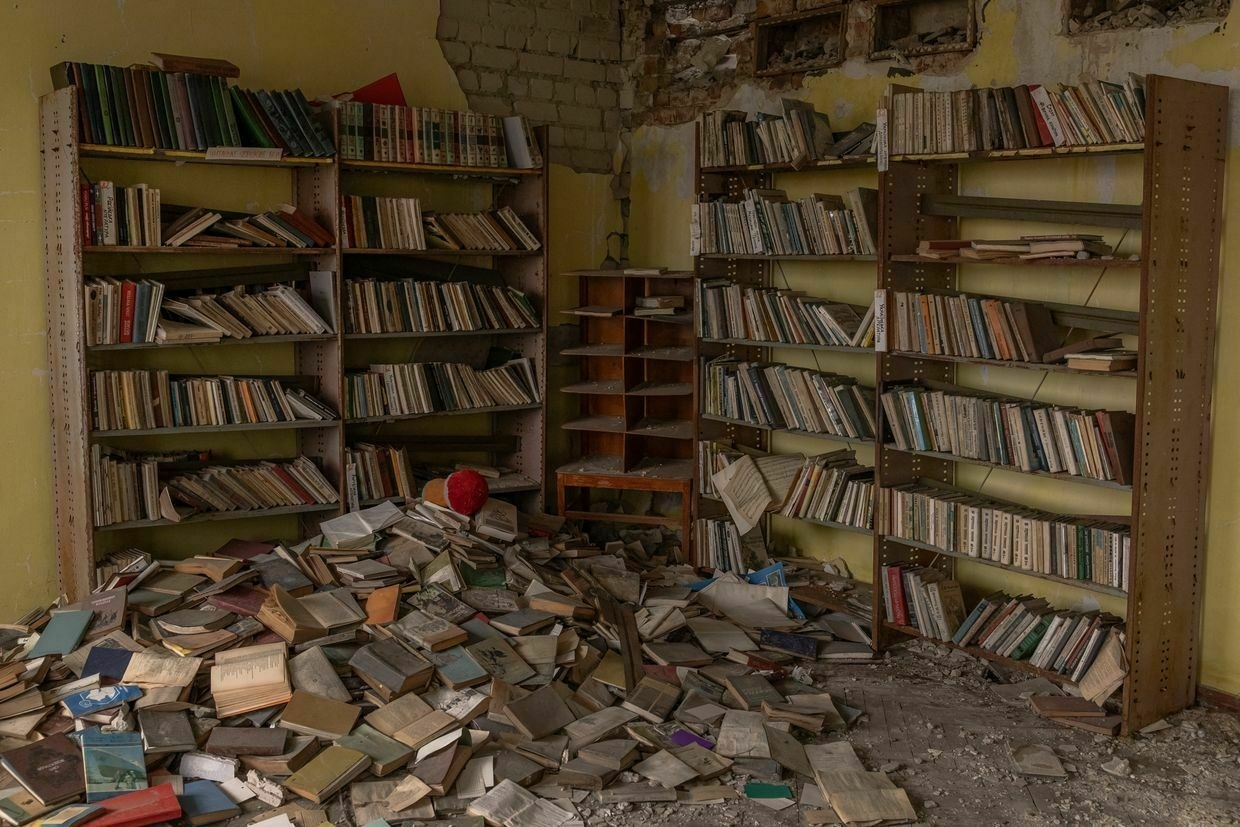
Launched to promote Russian literature on the global stage during Russia’s full-scale invasion of Ukraine, the new Dar (“Gift”) literary prize is already mired in controversy — and not just for its troubling timing.
After Ukrainian author Maria Galina declined the award for her wartime chronicle of Odesa, attention shifted to shortlisted Russian author Denis Beznosov over his past affiliation with the Russian State Children’s Library — an institution that hosted multiple “cultural” events for abducted Ukrainian children during his time there.
Since the full-scale war began, Ukrainian officials have documented the abduction of nearly 20,000 children by Russian forces. While in Russian territory, these Ukrainian children are subjected to systematic Russification, a deliberate effort to erase their heritage.
Beznosov has rejected the allegations that he was directly involved in any events with abducted Ukrainian children despite his senior role at the Russian State Children’s Library through the first year of the full-scale war, sparking a heated debate within Russia’s exiled cultural sphere over the broader issue of societal complicity during wartime.
Can Russian culture exist separate from the war?
Founded in 2025 by exiled Russian author Mikhail Shishkin, the Dar literary prize aims to spotlight Russian-language writers and foster a space where “literature in Russian takes its rightful place in the world, being responsible to humanity, and not to dictatorships.”
Shishkin has lived in Switzerland since 1995 and has long been an outspoken critic of Russian President Vladimir Putin.
At the same time, he has repeatedly called for separating Russian culture from the Russian state. Writing in an op-ed titled “Don’t Blame Dostoevsky” for the Atlantic in 2022, Shishkin expressed the hope that a Ukrainian writer “will speak up for (19th century Russian poet Alexander) Pushkin” whose statues were being dismantled across Ukraine.
While the Dar literary prize was launched by its organizers with the intent to signal that the Russian government does not hold exclusive claim to Russian culture, the initiative has faced criticism for promoting Russian language and culture “regardless of their place of residence and citizenship,” as it states on its website.
“The prize is structured in such a way that, on behalf of dissenting voices, it continues to transmit the official Russian narrative about a borderless Russian culture.”
Critics argue that this approach overlooks the Kremlin’s long-standing use of the Russian language as a tool to suppress Ukrainian and other national identities throughout the region, especially during wartime.
“The prize is structured in such a way that, on behalf of dissenting voices, it continues to transmit the official Russian narrative about a borderless Russian culture,” Ukrainian cultural commentator Bohdana Neborak told the Kyiv Independent.
The one-line biographies omit the authors’ nationalities, making it difficult to differentiate them beyond their shared use of the Russian language — the implication, intentional or not, is that they all might as well be Russian.
“It seeks ways of reconciliation within a dialogue that takes place in a single language but across different countries — thus creating a unified space similar to what is promoted by Russian propaganda. Such a dialogue is impossible, regardless of the goals stated by the prize,” Neborak added.
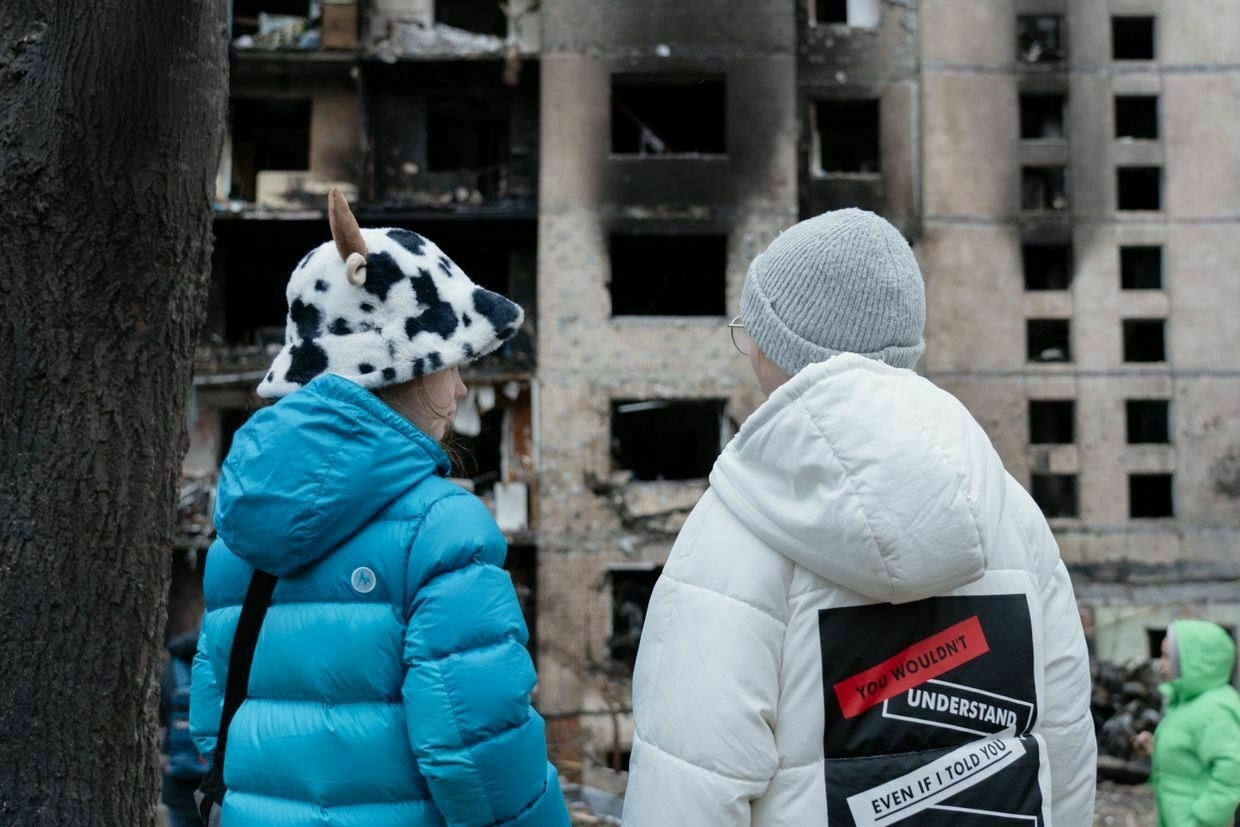
Ukrainian author Galina, who is among those in the country’s cultural sphere to have distanced themselves from writing in Russian since the full-scale war, was initially named the winner of the Dar literary prize for her book on the war’s impact in Odesa, but declined it.
In an open letter published on the award’s website, she argued that Russian-language literature is not in need of such institutional backing abroad, citing its long-standing role as a successful tool of soft power abroad for Russia.
“Perhaps, when all the funding flows from Russia are finally cut off, Russian literature will eventually take its rightful place among other world literatures,” Galina said.
“And even that — only after it is cleansed of the crimes of the state.”
Speaking to the Kyiv Independent, Galina acknowledged Shishkin’s overall pro-Ukraine stance since Russia’s invasion of Donetsk and Luhansk oblasts and the annexation of Crimea in 2014.
While she mentioned the sincerity of his intentions in granting the award, Galina also cautioned that the realities of the ongoing full-scale war cast the award in a different light.
“Any attempts to sew the Russophone space are doomed now,” she said.
Shishkin did not reply to the Kyiv Independent’s request for comment.
Russifying abducted Ukrainian children
Amid renewed debate over whether Russian culture can be meaningfully disentangled from the crimes of the Russian state, the Dar literary prize's greatest controversy stemmed from allegations that shortlisted author Beznosov may have been complicit in the state’s forcible deportation of Ukrainian children.
Beznosov served as the deputy director of the Russian State Children’s Library until November 2022, according to his LinkedIn account. However, he wrote in a post on his Facebook on May 29 that he left his position in September 2022 because “the events of 2022” made it impossible for him to continue his work.
During the first year of the full-scale war, the Russian State Children’s Library participated in a number of events involving Ukrainian children displaced by the Russian authorities from Ukraine’s occupied territories.
Photo albums uploaded to the organization’s Flickr page — including one from late March of 2022 titled “Meeting with children who were evacuated from Donbas” at a camp retreat — document the events, which were also covered by local media.
“People involved in crimes against humanity, in the deportation of Ukrainian children from occupied territories, or in the genocide of the Ukrainian people have no place near the Dar literary prize.”
Additional albums uploaded to the Russian State Children’s Library's Flickr account document the Kitovras Festival, which took place in August 2022 in Vladimir, a city located to the east of Moscow.
During the festival, there was an event for abducted Ukrainian children at a local library. Beznosov is photographed at the event, as is Russian children’s book author Andrei Usachev, who has been a vocal supporter of Putin and the war against Ukraine.
In his Facebook post, Beznosov claimed that he had curated the children’s program at the local park that year but denied any involvement in organizing the event for abducted Ukrainian children. He added that he was present at the event because he was “asked to announce the participating writers” in the capacity of his role at the Russian State Children’s Library.
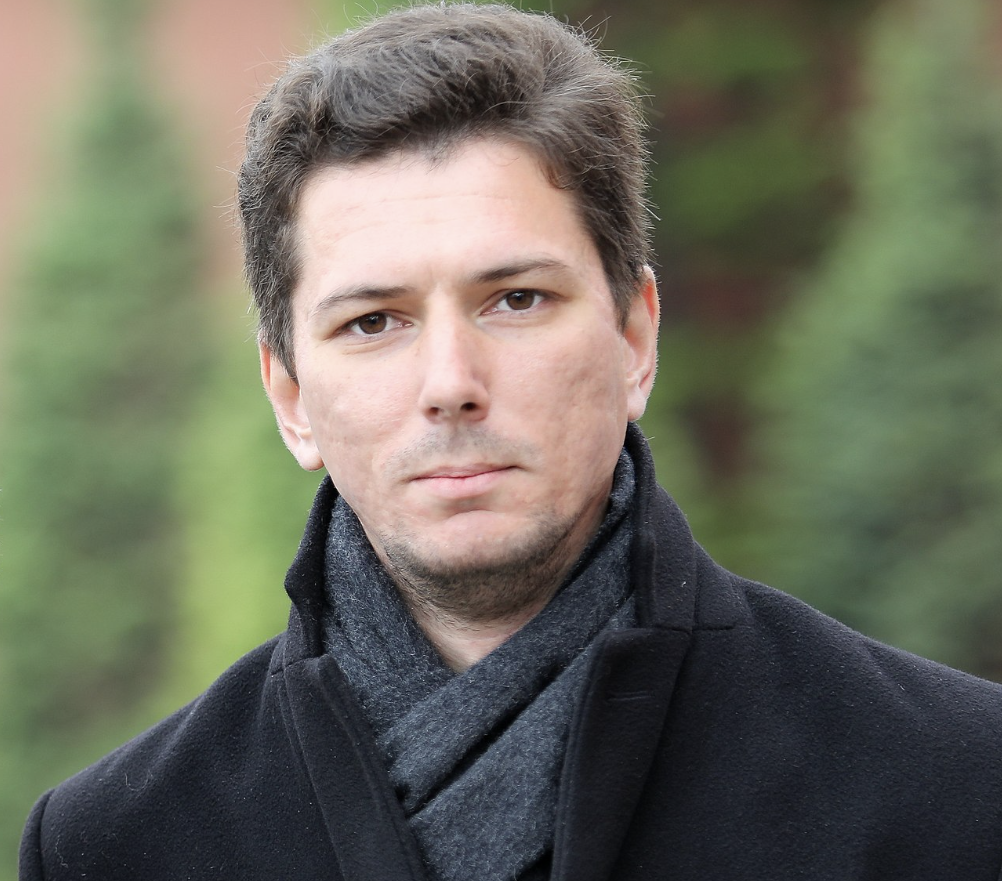
“I had no involvement with the (event with abducted Ukrainian children in Vladimir), have never been to Donbas, and did not compile any guidelines for promoting the Russian language or other similar recommendations. I never received or saw any such materials,” he wrote.
Beznosov did not respond to the Kyiv Independent’s request for comment.
Given the controversy surrounding Beznosov was sparked by his nomination for the Dar literary prize, Shishkin wrote on Facebook that “to what extent Denis Beznosov participated in these crimes — and whether he participated at all — must be determined by (the Ukrainian authorities), not a literary prize.”
“People involved in crimes against humanity, in the deportation of Ukrainian children from occupied territories, or in the genocide of the Ukrainian people have no place near the Dar literary prize.”
 The Kyiv IndependentKate Tsurkan
The Kyiv IndependentKate Tsurkan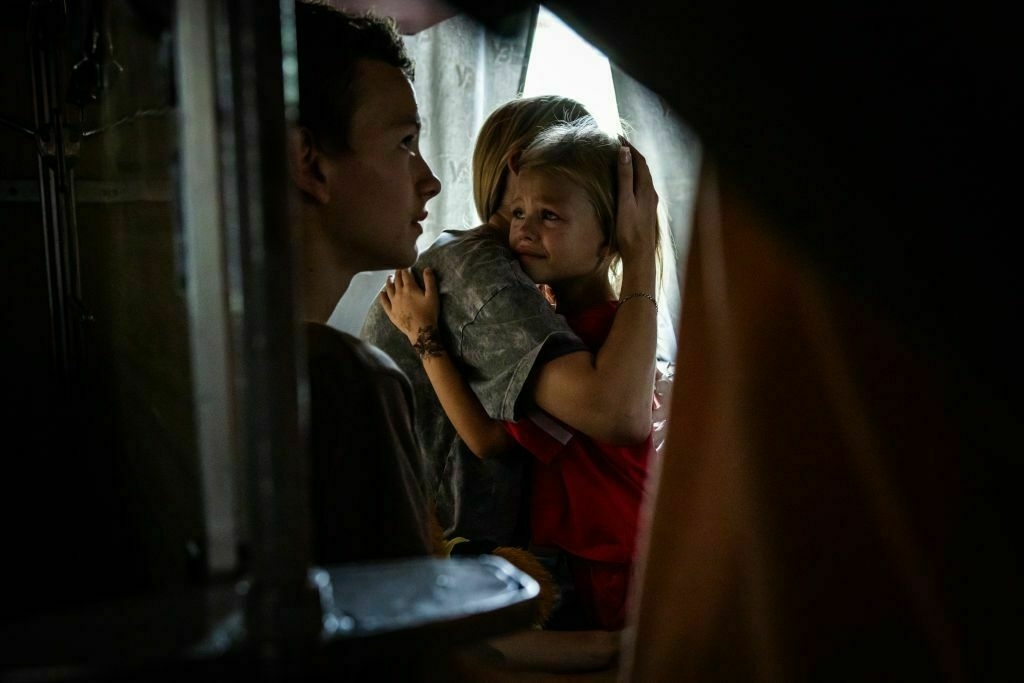
Questions of accountability
Beznosov’s professional background came under renewed scrutiny after Galina Rymbu, a Russian writer based in Ukraine, publicly alleged his complicity in the genocide of Ukrainians during his tenure at the Russian State Children’s Library.
In her posts, Rymbu highlighted that a closer examination of the events held by the library revealed that they were part of a larger, deliberate campaign to Russify abducted Ukrainian children.
“These camps (where children are brought) impose propaganda, cultural, educational, literary, and military-patriotic programming designed to erase Ukrainian identity and instill ‘great Russian culture and language,’ with the aim of convincing children they are now ‘Russian,’” Rymbu explained in her initial post.
“Not just the deportation itself, but also these ‘re-education’ camps and the propaganda and ‘cultural’ activities conducted in them are classified as acts of genocide by the Parliamentary Assembly of the Council of Europe resolution.”
Given the context of the full-scale war, the organization of events with abducted Ukrainian children would have been impossible without direct communication between the Russian State Children’s Library and the Russian security services, Rymbu wrote.
Photographs from the retreat with Ukrainian children posted in March 2022 on the Russian State Children’s Library’s Flickr page show a vehicle belonging to the Russian Ministry of Civil Defense, Emergencies, and Disaster Relief on the grounds.
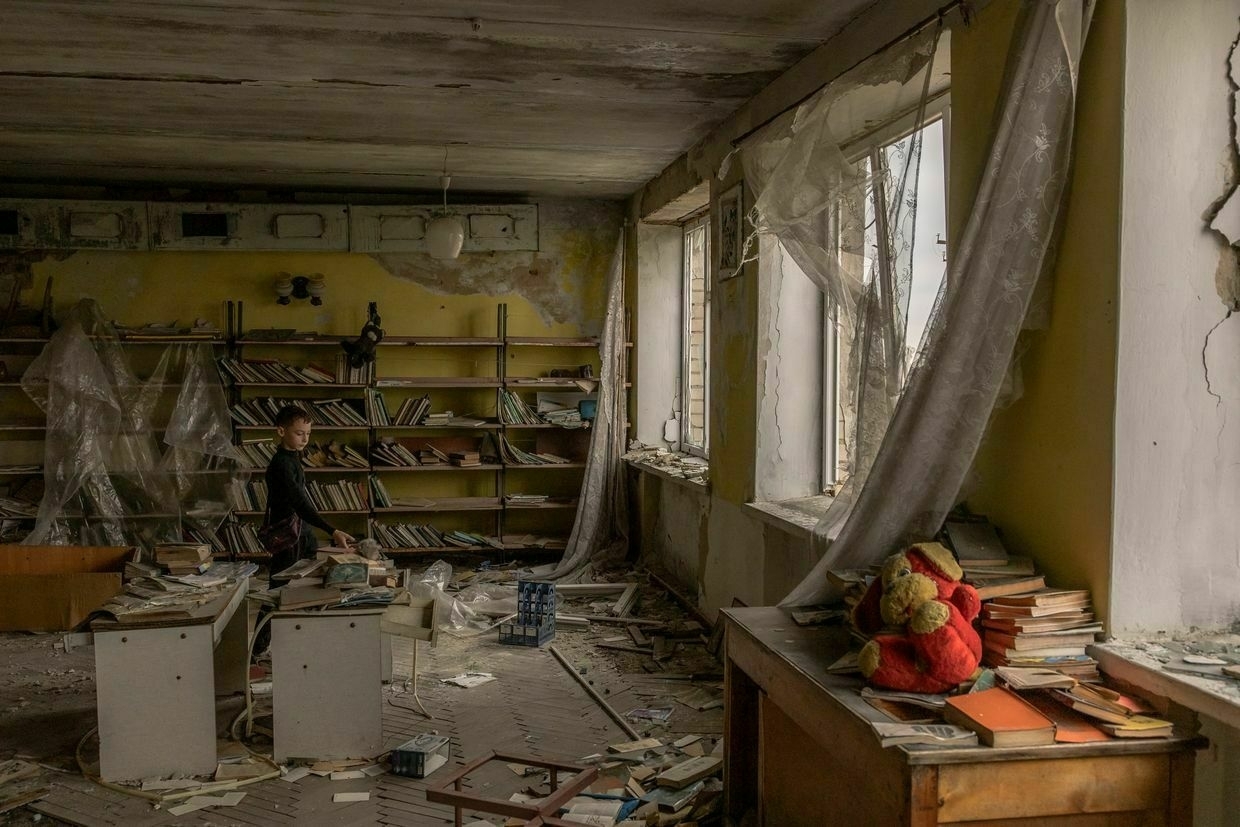
Rymbu also shared in her post a link to the grant application for “The First Book Goes to the Children,” the Russian State Children’s Library’s program associated with “cultural” events involving abducted Ukrainian children.
The application is publicly available on the Russian Presidential Fund for Cultural Initiatives’ website. It is presented as a project dedicated to preserving the “all-Russian cultural identity” and “counteracting the phenomenon of cancel culture.”
The Russian State Children’s Library proposes in the grant application that the "great Russian culture" can be a form of "psychological support" for Ukrainian children who “relocated” to Russian territory.
"The involvement of highly qualified specialists in children’s reading engagement and child psychologists will help children and teenagers not only connect with great Russian culture through books but also comprehend the foundations of Russia's spiritual and moral code," the proposal reads.
“Anyone even remotely connected to Russia’s occupation practices should be considered persona non grata.”
Following Rymbu’s investigative posts, several Russian artists in exile have rallied behind Beznosov, with Russian poet Dmitry Kuzmin even hinting at “provocations orchestrated by Russian security services” behind the issue rather than engaging with the gravity of the allegations levied against Beznosov.
Mikhail Edelstein, a Russian literary scholar who is listed on the expert council of Dar’s website, even went as far to call Rymbu’s posts “disgusting manipulation and clout-chasing.”
According to Russian author Sergei Lebedev, the absence of a clear anti-war, pro-Ukraine position among some members of the Russian literature community in exile reflects a deeper unwillingness to fully confront the scale of Russia’s aggression against Ukraine.
“The key problem is that for many Russian cultural figures, Russia’s war of aggression against Ukraine started in 2022, not in 2014,” Lebedev told the Kyiv Independent.
“And between 2014 and 2022 lies a gray zone of silence and moral compromises that most participants obviously don't want to look into.
However, Lebedev argues that it’s important to confront those in Russian society who were complicit with Russia’s war against Ukraine, regardless of the scale.
“Anyone even remotely connected to Russia’s occupation practices should be considered persona non grata,” Lebedev wrote on social media.
Note from the author:
Hi, this is Kate Tsurkan, thank you for reading this article. The Kyiv Independent doesn’t have a wealthy owner or a paywall. Instead, we rely on readers like you to keep our journalism funded. We’re now aiming to grow our community to 20,000 members — if you liked this article, consider joining our community today.
